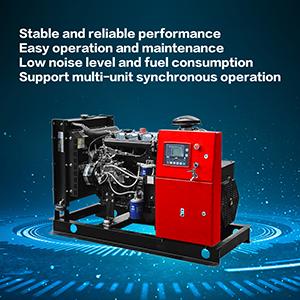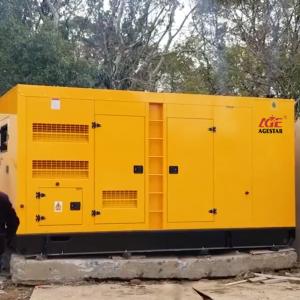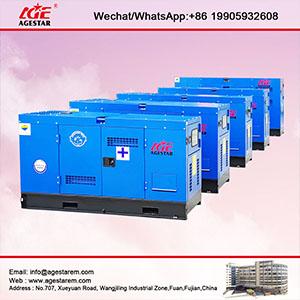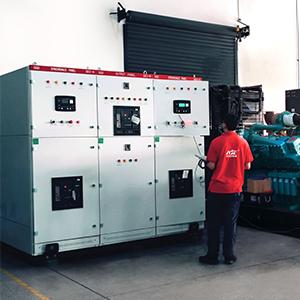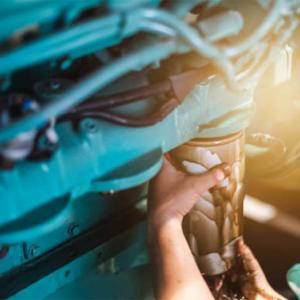Selection Guide for Diesel Generator Sets
When selecting a diesel generator set, you need to consider multiple factors to ensure that the selected unit can meet actual needs and has a good cost-effectiveness.First, determine the power demand. Calculate the total power load based on the equipment, venue or project scale to be powered. This requires a detailed list of the power of all power-consuming equipment and taking into account the simultaneous use factor, because not all equipment will be running at full load at the same time. For example, for a factory, the total power consumption of production equipment, lighting, air conditioning, office equipment, etc. should be considered, and then multiplied by a reasonable simultaneous use factor to obtain the approximate required power generation. It is generally recommended to select a generator set that is slightly larger than the calculated result to reserve a certain power margin to cope with possible future power demand growth or sudden high load conditions.
Secondly, consider the operating environment of the generator set. If it is used in harsh environments such as high temperature, high altitude, high humidity or dust, it is necessary to select a unit with corresponding adaptability. High temperature environment will affect the heat dissipation and power output of the engine, and it is necessary to equip a higher power cooling system or select an engine model with better high temperature resistance. The thin air in high altitude areas will lead to a decrease in engine air intake, affecting combustion efficiency. At this time, a generator set with plateau adaptability should be selected, which usually uses technologies such as turbocharging to compensate for insufficient air intake. Dusty environments require the unit to have a good air filter to prevent dust from entering the engine and causing wear.
Furthermore, the reliability and stability requirements of the generator set are also key factors in selection. For some places that cannot tolerate power outages, such as hospitals, data centers, airports, etc., diesel generator sets with high brand awareness, reliable quality and mature technology should be given priority. These units have often undergone rigorous testing and long-term market verification, and have a high trouble-free operation time and good stability. At the same time, the redundant design of the unit can also be considered, such as using dual units in parallel or equipping a spare unit to further improve the reliability of power supply.
Fuel consumption and operating costs are also aspects that cannot be ignored. Diesel generator sets of different brands and models may have differences in fuel consumption rates. When selecting, you can compare the fuel consumption indicators of different products and choose units with better fuel economy to reduce long-term operating costs. In addition, the maintenance cost of the unit should also be considered, including the price of parts, the difficulty of repair, and the quality and price of after-sales service. Some brands provide a more complete after-sales service network and a longer warranty period, which can reduce the subsequent maintenance costs and risks to a certain extent.
In addition, noise and emission requirements also need to be considered in many cases. If the generator set is installed in residential areas, commercial areas or areas with high environmental noise requirements, it is necessary to choose a low-noise unit and equip it with appropriate silencer equipment. With the increasing environmental protection requirements, there are also strict standards for the exhaust emissions of generator sets. Products that meet local environmental emission standards should be selected to avoid facing penalties or adverse effects on the environment due to excessive emissions.
Finally, the degree of automation of the unit needs to be considered. Most modern diesel generator sets have automation functions, such as automatic start, automatic switching, remote monitoring, etc. According to actual use needs, select a unit with a suitable degree of automation. For example, unmanned places can choose units with remote monitoring and automatic fault alarm functions to detect and deal with problems in a timely manner.
In short, the selection of diesel generator sets is a process that comprehensively considers many factors. Only by comprehensively weighing factors such as power demand, operating environment, reliability, cost, and environmental protection can we choose the most suitable diesel generator set to provide efficient, reliable and economical solutions for power security.
